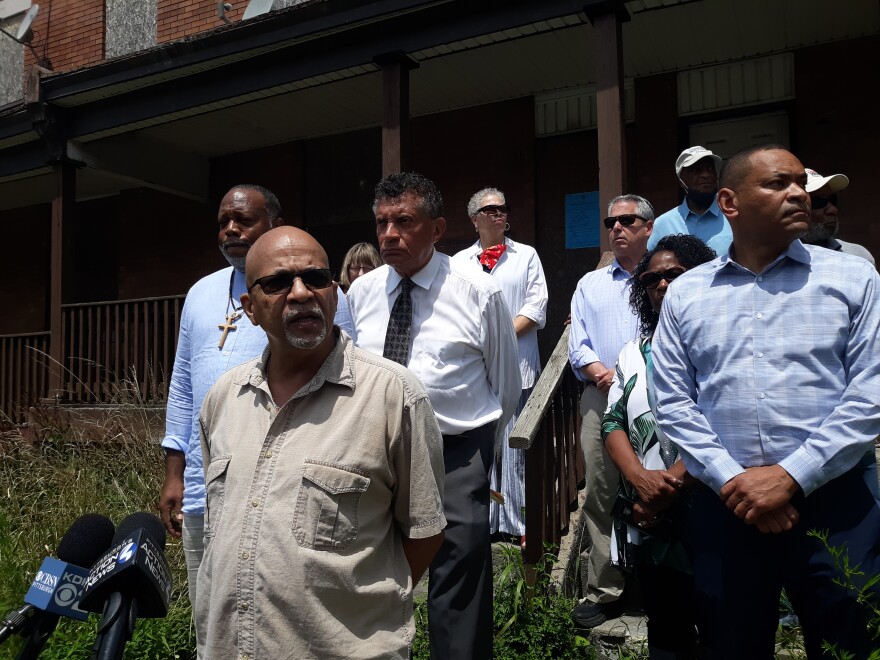A group of Black activists on Friday afternoon renewed their demand that Pittsburgh officials delay a final vote on a plan for $335 million in federal coronavirus aid.
Standing in front of a series of dilapidated Homewood rowhouses, Randall Taylor said that “Pittsburghers should hang our heads in shame” about the conditions at the site, which neighbors described as rat-infested.
Taylor and others said the city was in danger of squandering an opportunity to reverse years of blight and of unequal treatment of Black communities. On Wednesday, Council gave preliminary approval to a plan, crafted by Mayor Bill Peduto’s administration and a handful of council members, that would spell out a plan to distribute the federal money during the next four years. Much of the money would stave off job cuts that the city’s current budget called for in the absence of federal money, but the plan also envisions money for a slew of long-delayed capital projects and social programs such as supporting artists and removing water lines that contain lead.
Still, activists charge that the plans have been rushed, and that many of the programs lack detail, leaving them even warier about the future.
“Our City Council has turned its back on this community and turned its back on its people,” Taylor said. “And so we call on them again to stop what they're doing, pause a vote and come out and prioritize the lives of, particularly, our children in Pittsburgh by rebuilding this community.”
“We need to have taxation with representation,” agreed Dale Snyder, a Hill District church leader.
Activists have been trying to spread that message for weeks, making similar arguments at public hearings and other rallies. But Dan Gilman, Peduto’s chief of staff, says that what Friday’s event called for — historic investment in long-neglected communities — is exactly what the plan seeks to deliver.
“We agree these dollars provide a unique opportunity to invest in neighborhoods and people who have long not received the government partnership they desire,” Gilman said. ”Additionally, this is an opportunity to address the economic challenges that COVID has brought to Pittsburgh and the country. Which is exactly why waiting [to pass a plan] is counterintuitive, and why the mayor’s proposals include tens and tens of millions of dollars” for programs to invest in Black communities.
Those include an “Avenues of Hope” proposal to improve business districts in black communities, enhancements to youth recreation centers, home-ownership programs and money for the city’s long-idled Land Bank.
There is little sign that City Council is likely to reverse course after giving the plan tentative approval on Wednesday. But activists are promising a rally at 5 p.m. Monday, the day before the vote, at the Hill District’s Freedom Corner.
And some say there will be consequences after the vote as well.
People “are demanding accountability and undergirding that is a call for equity,” said Rick Adams, a longtime political activist. “I don’t think there was one person that spoke in favor” of the plan during public meetings, he said. And City Councilors should be “on notice” that “there will be elections — and if you haven't noticed, people are voting like they've never voted before.”





